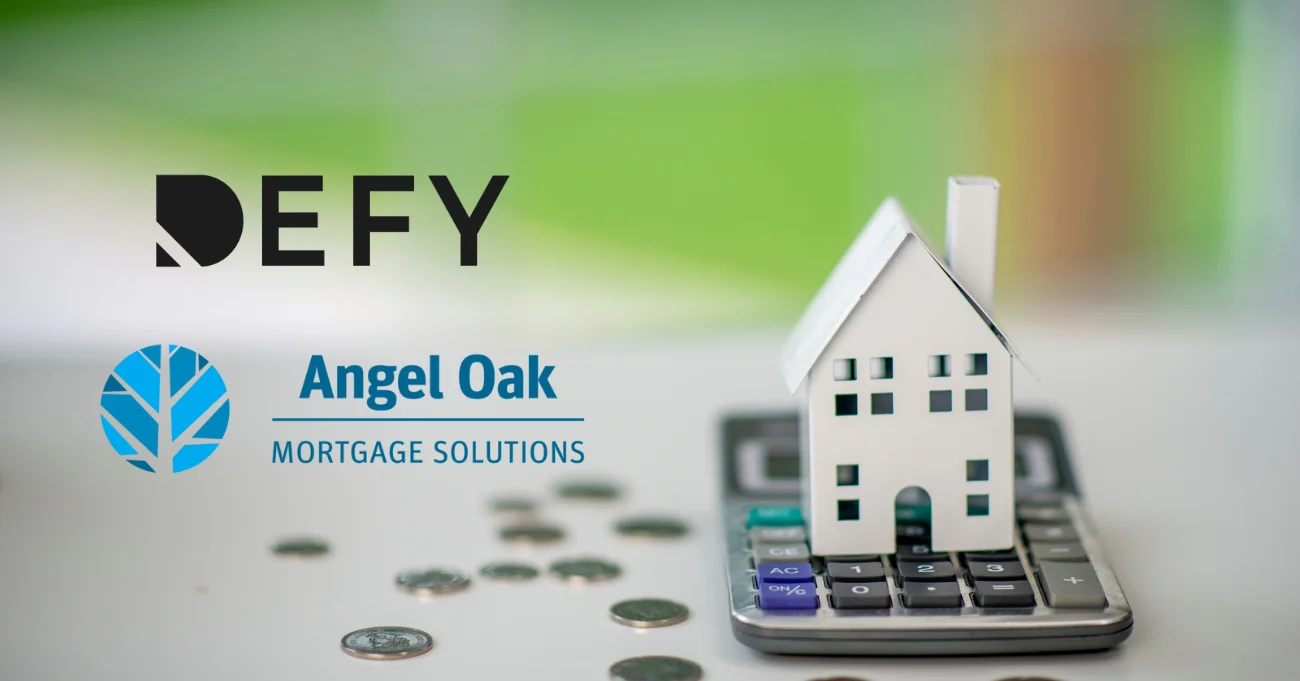Everything You Need to Know About Refinancing a Mortgage & The Best Time To Refinance a Home Loan
Refinancing a mortgage can be a smart financial move for many homeowners, potentially leading to lower monthly payments, reduced interest rates, or access to home equity. However, one common question that arises is when the best time to refinance a home loan is. The answer varies depending on several factors, including the type of loan you have, your financial situation, and current market conditions.
In this blog post, we’ll explore the timelines for refinancing different types of home loans, how soon you can refinance a home loan, and what you need to know before taking this step.
What is a Refinance?
A mortgage refinance is the process of replacing your existing home loan with a new one, typically with more favorable terms. This can involve changing the interest rate, loan term, or loan type, or even borrowing against your home’s equity. The primary goal of refinancing a mortgage is usually to save money, either through lower monthly payments or reduced overall interest costs over the life of the loan.
Refinancing a mortgage can also be used to achieve other financial objectives, such as consolidating debt, funding home improvements, or switching from an adjustable-rate mortgage to a fixed-rate loan for more stability. When you refinance, you’ll go through a similar application and approval process as you did with your original mortgage, including a credit check, income verification, and home appraisal.
Many people talk about “the best time to refinance a home loan” – when that is, how to know, what if the best time to refinance is too soon after you purchase, what to look for to know if it’s “the best time to refinance a home loan”. Those are a lot of questions, and although we can’t provide financial advice for refinancing, we can help answer some of the most pressing questions homeowners have about refinancing. (Check out our FAQ section for more too!)
So, Is There a Best Time to Refinance a Home Loan?
While there’s no universally “best” time to refinance, certain situations can make refinancing particularly advantageous. The ideal time to refinance often depends on a combination of market conditions and personal financial factors.
Market Conditions for Refinancing:
- Lower Interest Rates: If current rates are at least 0.5% to 1% lower than your existing rate, refinancing could lead to substantial savings.
- Rising Home Values: Increased equity in your home can help you qualify for better terms or allow you to remove private mortgage insurance (PMI).
Personal Finance Factors for Refinancing:
- Improved Credit Score: If your credit has significantly improved since you took out your original loan, you might qualify for better rates.
- Change in Financial Goals: Your refinancing decision should align with your long-term financial objectives, whether that’s lowering monthly payments, paying off your mortgage faster, or tapping into equity.
- Length of Time You Plan to Stay in the Home: Refinancing typically involves closing costs, so you’ll want to ensure you’ll stay in the home long enough to recoup these expenses through your monthly savings.
- Ability to Afford Closing Costs: While some refinance options allow you to roll closing costs into the loan, being able to pay these upfront can save you money in the long run.
The “best” time to refinance is when the benefits outweigh the costs and align with your financial situation and goals. It’s advisable to regularly review your mortgage terms and compare them to current market offerings. However, avoid trying to time the market perfectly – if refinancing makes sense for your situation and the numbers work out in your favor, it’s likely a good time to consider it. Always consult with a financial advisor or mortgage professional to analyze your specific circumstances and make an informed decision.
Why Should I Refinance a Home Loan?
- Lower interest rate
- Credit scores have improved
- Want more easy repayment options
- Need affordability with payments
- Want to eliminate mortgage insurance
- Change loan type
- Remove co-borrower from mortgage
- Pay off loan faster
- Tap into home equity
Refinancing a Mortgage: Requirements for Borrowers
- Good credit score (varies by lender)
- Stable income and employment history
- Debt-to-income ratio (varies by lender)
- Sufficient home equity (varies by lender)
- Current mortgage payments up to date
- Seasoning period met (time since last refinance or original mortgage)
Types of Loan Refinancing
Conventional Loan Refinancing Types
- Rate-and-Term Refinance: Allows borrowers to change their interest rate, loan term, or both, without taking cash out.
- Cash-Out Refinance: Enables homeowners to borrow against their home equity and receive a lump sum of cash at closing.
FHA Loan Refinancing Types
- FHA Simple Refinance: Allows current FHA borrowers to refinance into a new FHA loan with potentially better terms.
- FHA Streamline Refinance: Offers a simplified process for current FHA borrowers to refinance with minimal documentation and potentially without an appraisal.
- FHA Rate-and-Term Refinance: Similar to a conventional rate-and-term refinance, but for FHA loans.
- FHA Cash-Out Refinance: Enables FHA borrowers to access their home equity and receive cash at closing.
VA Loan Refinancing Types
- VA Interest Rate Reduction Refinance Loan (IRRRL): Allows VA loan holders to refinance to a lower rate or switch from an adjustable to a fixed-rate loan with minimal paperwork.
- VA Cash-Out Refinance: Permits eligible veterans to refinance their existing VA loan or another type of loan into a new VA loan while accessing their home equity.
USDA Loan Refinancing Types
- USDA Streamlined Refinance: Offers a simplified process for current USDA borrowers to refinance with reduced documentation and potentially without an appraisal.
- USDA Streamlined Assist Refinance: Similar to the streamlined option but with even less stringent requirements and no need to calculate debt-to-income ratios.
- USDA Non-Streamlined Refinance: A more traditional refinance option for USDA borrowers that requires full documentation and underwriting.
Jumbo Loan Refinancing Types
- Jumbo Loans: Jumbo loans typically follow similar refinancing options as conventional loans, including rate-and-term and cash-out refinances.
- Due to the larger loan amounts, jumbo refinances often have stricter qualifying criteria and may require higher credit scores and lower debt-to-income ratios.
Non-QM Loan Refinancing Types
- Non-QM Loans: Non-QM (non-qualified mortgage) refinances cater to borrowers who don’t meet traditional lending criteria, such as self-employed individuals or those with unique income situations.
- These refinances may include bank statement loans, asset-based loans, or other alternative income verification methods to qualify borrowers.
Refinancing Requirements, Timelines, and Fine Print
Timelines and specific details for refinancing a mortgage vary depending on the lender and borrower’s circumstances. One of the most common questions asked is, “How soon can you refinance a home loan?”
It’s a valid question, but important to note that the answer varies depending on loan type, states, lenders and a variety of other facts. We’ve tried to break it down. Here are the general mortgage industry guidelines for refinances across different loan types:
Refinancing Conventional Loans
- Generally offers a shorter time frame and fewer requirements than other options
- Rate-and-term refinances available immediately
- Cash-out refinances require 12+ months of loan ownership
- Borrower must be on the home’s title for 6+ months
Refinancing FHA Loans
- Simple refinance and rate-and-term refinances available immediately
- Streamlined refinances require 7+ months of loan ownership
- Cash-out refinances require 12+ months of loan ownership
- Lenders may require 6-12 months of on-time payments for cash-out refinances
Refinancing VA Loans
- Available 210 days after closing
- Requires 6+ consecutive monthly payments on current loan
Refinancing USDA Loans
- Typically available 12+ months after closing
- Some cases require the borrower to be on the loan for 6+ or 12+ months
Refinancing Jumbo Loans
- How soon can you refinance a home loan for this loan type depends on the lender
Refinancing Non-QM Loans
- How soon can you refinance a home loan for this loan type depends on the lender
How Soon Can You Refinance a Home Loan?
The timeline for refinancing a home loan depends on the type of mortgage you have and the type of refinance you’re pursuing. Here’s a breakdown for different loan types:
- Conventional Loans: There’s typically no waiting period for rate-and-term refinances on conventional loans. If you’re looking to do a cash-out refinance, however, you may need to wait 6 months from the original loan’s closing date.
- FHA Loans: For FHA-to-FHA refinances, you can use the FHA Streamline program after making at least 6 monthly payments. For a cash-out refinance, you’ll need to wait 12 months from the closing date of your original loan.
- VA Loans: VA loans offer an Interest Rate Reduction Refinance Loan (IRRRL) that allows you to refinance immediately after closing on your original loan. For a cash-out refinance, you typically need to wait 6-12 months.
- USDA Loans: USDA loans require a 12-month waiting period before you can refinance using their Streamlined Assist program.
- Jumbo Loans: The waiting period for jumbo loans varies by lender, but it’s often similar to conventional loans. Some lenders may require a 6-12 month waiting period.
- Non-QM Loans: Non-Qualified Mortgage loans have less standardized rules. The waiting period can vary significantly depending on the lender and the specific loan product. Some may allow immediate refinancing, while others might require waiting periods similar to conventional loans.
It’s important to note that while these are general guidelines, individual lenders may have their own policies that could extend these waiting periods. Additionally, even if you’re eligible to refinance sooner, it may not always be financially beneficial. Always consult with a professional before making the decision to refinance.
Pros and Cons of Refinancing a Mortgage
Pros of Refinancing a Mortgage:
- Lower Interest Rate: Refinancing a mortgage can help borrowers secure a lower interest rate, potentially saving you thousands over the life of your loan.
- Lower Monthly Payments: A refinance can reduce monthly mortgage payments, freeing up cash for other expenses or savings.
- Change Rate Structure (ARM): Refinancing a mortgage allows individuals to switch from an adjustable-rate mortgage to a fixed-rate loan, providing more stability in your payments.
- Change Loan Term: Borrowers can shorten or lengthen their loan term through refinancing, either to pay off their mortgage faster or to reduce monthly payments.
- Tap Into Home Equity: A cash-out refinance enables homeowners to access your home’s equity for major expenses, debt consolidation, or investments.
Cons of Refinancing a Mortgage:
- Closing Costs: Refinancing a mortgage typically involves paying closing costs, which can range from 2% to 5% of the loan amount.
- Credit Impact: The credit inquiry and new loan account may temporarily lower a borrower’s credit score.
- Slower Equity Growth: Refinancing a mortgage can reset a borrower’s amortization schedule, potentially slowing down a borrower’s equity build-up in the short term.
Lenders To Assist With Refinancing a Mortgage
1. Rocket Mortgage
Rocket Mortgage, formerly known as Quicken Loans, is one of the largest mortgage lenders in the United States. They offer a wide range of refinancing options, including conventional, FHA, VA, and jumbo loans. Rocket Mortgage is known for its user-friendly online platform, which allows borrowers to complete much of the refinancing process digitally, from application to document upload.
The company prides itself on its quick closing times and excellent customer service. Rocket Mortgage also offers a unique “Rocket Refinance” option, which can close in as little as 15 days for well-qualified borrowers. This streamlined process can be particularly appealing to those looking to refinance quickly to take advantage of low interest rates.
2. Wells Fargo
Wells Fargo is a well-established bank that offers a comprehensive range of refinancing options for homeowners. Their refinance products include conventional, FHA, VA, and jumbo loans, as well as specialized programs for first-time homebuyers and low-to-moderate income borrowers. Wells Fargo’s extensive network of branches can be beneficial for those who prefer in-person interactions during the refinance process.
The bank provides competitive rates and often offers special promotions or discounts for existing customers. Wells Fargo also has a robust online platform that allows borrowers to track their application status and upload necessary documents, streamlining the refinance process. Their “yourLoanTracker” tool keeps borrowers informed about their refinance status and any required actions.
3. Better.com
Better.com is an online mortgage lender that has gained popularity for its technology-driven approach to home loans and refinancing a mortgage. They offer a fully digital application process for refinances, with the potential for same-day pre-approval and competitive rates. Better.com doesn’t charge lender fees or commission, which can result in lower closing costs for borrowers.
The company prides itself on transparency and provides a clear breakdown of costs associated with the refinance. Better.com also offers a “Better Price Guarantee,” promising to match any valid competitor’s offer and credit an individual $100 if they can’t beat it. Their streamlined process and focus on customer experience have made them a popular choice among tech-savvy borrowers.
4. Bank of America
Bank of America is another major bank that offers a variety of options to refinance a mortgage. They provide conventional, FHA, VA, and jumbo refinance products, catering to various borrower needs. Bank of America offers both digital and in-person application options, allowing customers to choose their preferred method of interaction.
The bank often provides special offers or discounts to existing customers, which can include reduced origination fees or relationship pricing benefits. Bank of America also offers a digital tool called Home Loan Navigator, which allows borrowers to track their refinance application, upload documents, and communicate with their loan officer throughout the process.
5. Defy Mortgage
Defy Mortgage is bringing some bold, innovative energy to the mortgage game for non-traditional borrowers. Their experienced team specializes in helping real estate investors build their empire and establish their legacy with tailored loan solutions customized to meet each investor’s unique needs. They break down barriers for both buying and refinancing, making the process smoother and more secure.
That cookie-cutter, one-size-fits-all approach? Not their style. Defy knows that access to the right mortgage can make or break a project. They’ve seen firsthand that the banks are rigid – many of Defy’s employees worked there for years. It’s why Defy was started – they are driven by a passion to challenge the status quo and create a new era of lending that puts the power in the hands of borrowers. Talk about setting new standards in the industry.
Defy’s CEO, Todd Orlando, is an experienced banker who isn’t afraid of defying the traditional in the financial services space. Recognizing that the number of self-employed individuals is at an all-time high, Defy offers 75+ creative loan programs to help non-traditional borrowers achieve their goals – and that includes DSCR, fix & flip loans, construction loans and more. And the biggest pro of all? They close fast and make it easy.
Refinancing a Mortgage FAQs
- What does it mean to refinance a home loan?
Refinancing a mortgage means replacing your existing mortgage with a new one, typically to obtain better terms such as a lower interest rate, different loan duration, or to access home equity.
- How long do I have to wait to refinance my home loan?
The waiting period varies depending on the loan type and lender, but it’s generally between 6 to 12 months for conventional loans, while government-backed loans like FHA and VA may allow refinancing a mortgage sooner.
- How do I refinance my home loan?
To refinance, start by shopping for lenders, submit an application, provide necessary documentation, go through underwriting, and close on the new loan, which will pay off your existing mortgage.
- How often can I refinance my home loan?
There’s typically no limit on how often you can refinance, but some lenders may have waiting periods between refinances, and frequent refinancing a mortgage can impact your credit score and overall financial health.
- What are the pros and cons of refinancing a mortgage?
Pros include potentially lower interest rates and monthly payments, while cons may include closing costs, fees, and the possibility of paying more interest over an extended loan term.
- How much equity do I need to refinance a home loan?
Most lenders require at least 20% equity for a conventional refinance, although some government-backed programs may allow for less equity or even no equity in certain cases.
- Who can help me refinance a home loan?
Banks, credit unions, online lenders, and mortgage brokers can all assist with refinancing a mortgage, helping you compare options and navigate the application process based on your specific needs and financial situation.
- What is the best time to refinance a home loan?
The best time to refinance is typically when interest rates are significantly lower than your current rate, or when your financial situation has improved enough to qualify for better terms.
- How do I know what the best time is to refinance a home loan?
You should market interest rates and compare them to your current rate, while also considering your credit score, home equity, and financial goals to determine if refinancing would be beneficial.
- How soon after I purchase can I refinance a home loan?
The timeline varies depending on the loan type, but generally, you can refinance a conventional loan immediately, while government-backed loans may have waiting periods ranging from 6 to 12 months.




